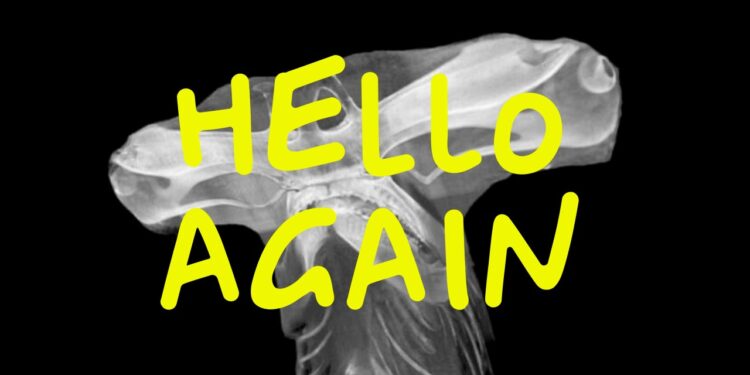It feels like a lifetime ago that I naively committed to delivering a newsletter every two weeks. How I assumed that projects, personal life and other priorities wouldn’t eventually get in the way. Silly Kyle. Or silly papa, as my son often reminds me.
Anyways. I’m back. The hiatus wasn’t planned but might have been necessary. In the face of the barrage of AI generated thought pieces and every single LinkedIn post sounding like it came from the same lame duck author, I needed to recalibrate.
Like seriously, how many times do I need to read about the rich “tapestry” of some fucking campaign elements? Does no one realize their GPT is showing?
Sorry, I digress. My point was I’m trying to get better at my daily writing practice. I’m starting to become seriously worried that my connection to my thinking is slowly devolving the more I tap into these tools.
Yes, even with me decrying the LinkedIn posts, there are times and tasks that these tools are amazingly, and terrifyingly, useful for.
Life update
So the life update. Last time I shared a post I was happily working on my second global flagship campaign for the Samsung S25. I was getting further upstream with Nike and building out a pretty genius team at BBH in Singapore. We’d just moved to a new house in my favourite part of Singapore.
Life was good. It felt settled. So we decided to change everything.
Long story short my wife, Heidi Kasselman, was offered an amazing opportunity. She could join arguably one of the world’s most storied agencies in Clemenger BBDO, and we suddenly had to decide: do we move yet again, this time to Australia?
Weirdly looking back at the last 15 years I haven’t stayed in one house for more than 2 years, so there might be a pattern here.
We tried to feign rationality for a little.
Pro: It’s much more similar to South Africa.
Con: It’s far from pretty much everything.
Pro: We can have a car again.
Con: We will sit in traffic.
Pro: I won’t sweat as soon as I step out the door.
Con: We have to do winter.
Pro: Kangaroos & Koalas
Con: Snakes and Spiders
Pro. Con. Pro. Con. Pro. Con. Pro. Con. Pro. Con. Pro. Con….
You get the picture. So we did what we always do. We jumped straight into the unknown. The Not Normal thing. I read somewhere that there are no right or wrong decisions, just decisions.
Big scary decision
We have absolutely no way of knowing what would have been a better decision at the time because you can’t actually reverse time to see what might have happened. The only thing to do is to decide. And why decide on what’s comfortable when there is so much more room to grow in the big scary decision?
So I took on a new role: my family’s chief care officer. My responsibilities included finding a school for my son, setting up our accounts, finding a car, cleaning, folding, washing, cooking, daddy drop offs, finding a house. And to be honest, it’s been fantastic.
A month into it I actually felt the cortisol finally leave my body. I felt myself thinking and feeling more clearly than I have probably ever before.
Even growing up I felt I had a “job” of sorts in my swimming career from the age of 10. This was the first time I could just kind of do me without a pressure sitting on top of me.
Clarifying as a strategist
I’ve kept myself a bit busy of course, but nothing like before. Some fractional work for Nike. Steering the branding and marketing ship at BRU Worldwide. Now helping the good folks at BULLFROG. But generally I can’t think of a time in my life that I have felt this unstressed.
And it’s been totally clarifying for me as a strategist. Which was probably needed since I’ve jumped out of the comfortable net of a full-time job at an agency and am making my way through this freelance/fractional/consulting strategy world.
It was especially needed because during my moments of downtime and doom scrolling, I’ve been inundated. The horde of “brand gurus,” “digital marketing specialists,” and “creative planners” showing their knowledge by only back rationalising and dissecting other people’s work.
Overwhelming number of charlatans
So-called “strategists” spouting the latest anthropological word vomit on green screen while holding microphones tied to obscure objects (It’s called a hook, Kyle!). Seriously, the amount of charlatans that have come out of the woodwork is overwhelming.
It’s part of the reason I’ve been so quiet on here. What do I have to share that all these marketing wizards and strategy sherpas haven’t already covered? But then it hit me. The thing I have to share is that I’ve actually done the work. I don’t live in the world of theory. And ultimately neither should strategy.
Knowing what to do to get 5 stars on a system1 test is not strategy.
Dissecting the cultural zeitgeist is not strategy.
Post rationalising campaigns, and calling out lessons from them, is not strategy.
Arguing about differentiation vs distinctiveness is not strategy.
The “vibe economy” is not strategy.
Brat Summer is not strategy.
I would argue that 99% of what is being shared as “strategic” insights/observations/blah blah is not strategy. Strategy is action.
That’s where most people have no clue. Because without action, without provoking a reaction out of people, and getting them to move, to change behaviour, to do something differently, you just have words.
Engaging and sometimes interesting words, yes. But literally just more words in a sea of words.
I am so grateful for this time I’ve had because I now finally know what I believe, and what I can centre myself around as I move into this next phase of my career. Strategy needs to provoke.
Without that, it’s not strategy. Yes, some of the things I mentioned might work their way into how you get to that provocation, but our number one goal should always be action. Anything else is just a wank.
So I’m going to start sharing again, but I’m not coming to muddy the waters even more. Because if the junior planners out there start thinking that the role of strategy, and a strategist, is what they see on their feeds… we are all seriously fucked.
Hopefully I can help show how a strategy can provoke a change, how it can actually get people moving, and how it should drive action.
Real strategy doesn’t just speak – it provokes.


 Kyle Matthew Duckitt.
Kyle Matthew Duckitt. 











